brand
University Dons Proffer Solutions to Africa’s Economic Prosperity at the UBA Professorial Lecture

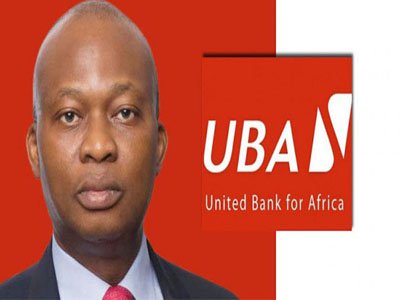
Intellectuals and leading minds across Africa have suggested the adoption by governments, of strategic policy actions which are expected to ultimately lead to the economic prosperity of the continent.
The Academics who spoke during the first Lecture Series of the UBA Professorial Chair in Finance at the University of Lagos (UNILAG) on Tuesday, listed a number of policy measures and strategies that can bring about far reaching results. These include instituting stable macro-economic policies, the adoption of supply-side strategies, capital market development, enhancement of banking and financial system, liberalisation of the economy, privatisation and reduced government dominance of economic management, democracy and good governance, human capital development, policy co-ordination and enabling the multilateral environment.
These polices are capable of creating a sustainable path towards the socio-cultural, economic and political development of the continent.
The Professor of Finance and Chairman, UBA Professorial Chair, University of Lagos( UNILAG) Prof John Ezike was joined by the Head of Department, Economics, UNILAG, Professor Risikat Dauda and Senior Lecturer, Finance Department UNILAG, Dr Olalekan Obademi as they took turns in making contributions on the theme ‘The Dynamic Structure of World Economy from Globalisation To Slowbalisation; The African Dilemma’.
Ezike who led the discourse, explained that the global economy is currently witnessing the fourth wave of revolution in civilisation, which is the movement towards de-globalisation or Slobalisation, adding that countries that have not benefitted from globalisation are those that fail to implement sound macroeconomic measures to maintain financial and exchange stability.
He said, “It behoves countries in sub Saharan –Africa, therefore, to strive to adopt policies that are in consonance with the realities of the rapid integration of world economies. The world must seek for answers in a new ideology which will allow globalisation to prosper faster, but prevents the rise of elitism. In point of fact, some world leaders are already of this view as they have condemned the trickledown theory of capitalism.”
Supporting his point, Professor Ezike shed light on how the mentioned policies can take the continent to a new high. On Stable Macroeconomic Policies, he explained that Globalisation increases the cost of macroeconomic distortions while enhancing the reward for sound policies. “As a result, it is important that sound macroeconomic, sectorial and structural policies are applied to improve internal balance, ensure external sector viability and increase the overall rate of economic growth”. Stable macroeconomic policies also ensure that the domestic economy is insulated from disruptive short term capital flows as investment savings decisions would be predicated on domestic economic fundamentals rather than market sentiments that may be unrelated to developments in the economy.
While explaining Capital Market Development, he explained that the capital market should be developed before opening it to international competition. He further noted that the gradual opening up of the capital market would help to reduce the influx of destabilising short term capital flows which in some cases may result in economic overheating. To avoid unintended developments, the capital market should be opened up gradually after adequate safeguards have been put in place and productive sectors have been strengthened.
Enhancing of the Banking and Financial System: In this case, he said the banking and financial systems needs to be strengthened through adequate supervisory and prudential regulations to ensure that internationalisation does not disrupt the financial sectors, precipitate macroeconomic instability and weaken the productive sectors of the economy.
For Democracy and good governance, Ezike noted that good governance is invaluable for a prosperous economy and that the rule of law, transparency and accountability, the bedrock of public administration prevails. He added that, it is worthy to note that excessive government intervention in economic management creates a fertile ground for corruption and rent seeking agencies. “A well-focused administration geared towards reducing bottlenecks on the path of the private sector, would generate adequate impetus for the acceleration of economic growth, he concluded, saying rule of law reduces the incentives for corruption and ultimately creates an enabling environment for the efficient allocation of resources through the free interplay of market forces”.
According to him, history has shown that it is difficult or near impossible to sufficiently gain sustain growth in an economy like Nigeria which is highly multi-ethnic, has diverse parts, but is highly dependent on a mono-product export resource.
“At this juncture, it is safe to say Nigeria and other countries in its league, must out of necessity enthrone true federalism, in its governance and diversify its economic and export base in order to reposition the economy so as to reap the attendant benefits of dynamic world globalisation/slobalisation”, she noted
On his part, the Deputy Vice Chancellor, and Chairman UBA Board of Trustees, Mr. Ben Oghojafor, appreciated UBA for resuscitating the UBA Professorial Chair of Finance and the laudable support it continues to give the institution.
UBA had in 2015 resuscitated the UBA Professorial Chair of Finance at the UNILAG with an endowment sum of the N52.9 million with the aim of bridging the huge gap in the funding of educational system in the country.
Oghojafor said, “It is to the credit of UBA, that the seed they planted through the first endowment has grown and is now bearing fruit. It is on record that the first endowment in 1972 facilitated the establishment of the department of finance in 1973, the first of such department in Finance in any University in Nigeria and has helped train a great number of finance graduates who have gone on to make great impacts in the country”.
“We appreciate the generosity of UBA in helping to make this colloquium a reality today and are hopeful that the bank will sustain this noble initiative for a long time to come”, Oghojafor said.
In his response, Group Managing Director, Kennedy Uzoka, United Bank for Africa, represented by Head, Micro-small, Small and Medium Enterprises (MSMEs),Mr Babatunde Ajayi said: “UBA is very proud to be associated with the endowment of professorial chair of finance in University of Lagos and it is our plan to continue to endow that chair”. He also noted that it is the banks passion to improve the quality of education across the continent, particularly in the 20 African countries that the bank is present.
“It is also our way of giving back to the society, as we will continue to sustain the initiative and many more that concern education, because it is very important to UBA and we are more than committed to providing the necessary support for the youths in Nigeria and across the African continent,” Ajayi said

l-r: Director of Advancement office, University of Lagos; Mr. Oluwarotimi Shodinmu; Regional Head, UBA Plc, Mr Uzoechina Molokwu; Guest Speaker, Professor Dauda Risikat; Deputy Vice Chancellor, University of Lagos and Chairman Board of Trustees, UBA Professorial Chair, Professor Ben Oghojafor; Chair Occupier, UBA, Professorial Chair in Finance, Professor John Ezike; Head, Head, Micro-small, Small and Medium Enterprises (MSMEs), United Bank for Africa, Mr. Babatunde Ajayi; and Regional Head, UBA Plc, Mr. Uche Agu, at the 1st Annual Lecture of UBA Professorial Chair in Finance, themed: The Dynamic Structure of World Economy, From Globalisation To Slowbalisation ; The African Dilemma… held at University of Lagos on Tuesday
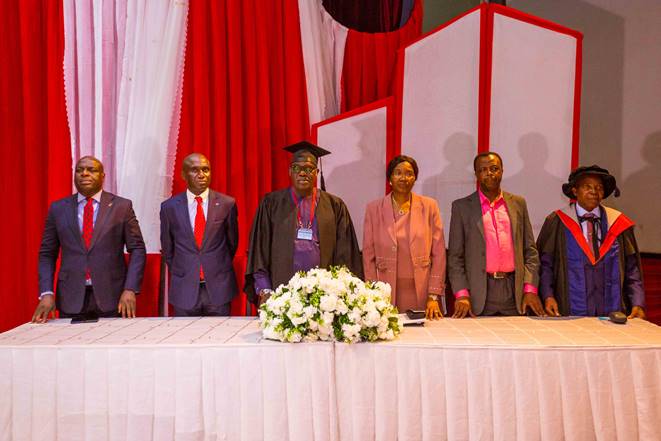
Regional Head, United Bank for Africa(UBA) plc, Mr. Uche Agu; Head, Micro-small, Small and Medium Enterprises (MSMEs), UBA Plc Mr. Babatunde Ajayi; Deputy Vice Chancellor, University of Lagos(UNILAG) and Chairman Board of Trustees, UBA Professorial Chair in Finance, Professor Ben Oghojafor; Guest Speaker, Professor Dauda Risikat; Head Of Department, Finance, UNILAG, Dr. Ayo Olowe; and Chair Occupier, UBA, Professorial Chair in Finance, Professor John Ezike, at the 1st Annual Lecture of UBA Professorial Chair in Finance, themed: The Dynamic Structure of World Economy, From Globalisation To Slowbalisation ; The African Dilemma… held at University of Lagos on Tuesday

l-r: Director of Advancement office, University of Lagos; Mr. Oluwarotimi Shodinmu; Regional Head, UBA Plc, Mr Uzoechina Molokwu; Guest Speaker, Professor Dauda Risikat; Deputy Vice Chancellor, University of Lagos and Chairman Board of Trustees, UBA Professorial Chair, Professor Ben Oghojafor; Chair Occupier, UBA, Professorial Chair in Finance, Professor John Ezike; Head, Micro-small, Small and Medium Enterprises (MSMEs), United Bank for Africa, Mr. Babatunde Ajayi; and Regional Head, UBA Plc, Mr. Uche Agu, at the 1st Annual Lecture of UBA Professorial Chair in Finance, themed: The Dynamic Structure of World Economy, From Globalisation To Slowbalisation ; The African Dilemma… held at University of Lagos on Tuesday
brand
ZENITH BANK’S GROSS EARNINGS SURGE 16% TO N3.4TN, AS PBT HITS N917.4BN IN Q3 2025


Zenith Bank Plc has released its unaudited financial results for the nine months ended 30 September 2025, with a remarkable 16% year-on-year growth in gross earnings from N2.9 trillion recorded in Q3 2024 to N3.4 trillion in Q3 2025. The Group’s performance continues to demonstrate resilience, strong momentum, disciplined execution and an ability to deliver long-term shareholder value in spite of challenging macroeconomic environment.According to the financial results presented to the Nigerian Exchange (NGX), the growth in gross earnings was driven by a sustained growth in interest income which grew by 41% year-on-year to N2.7 trillion. The growth in interest income was supported by a high-yield rate environment and an expansion in the Bank’s investment portfolio. Despite the increase in interest expense by 22% to N814 billion on the back of a tightening monetary cycle and a growth in the Bank’s funding base, the Bank was able to achieve a healthy Net Interest Margin (NIM) of 12% as against 10% in September 2024. Non-interest income declined by 38% to N535 billion, underpinned by a 60% decline in trading gains.Profitability remained strong, with profit before tax at N917 billion as against N1.00 trillion reported in September 2024. Profit after tax also declined by 8% to N764 billion and Earnings Per Share (EPS) came in at N18.60 as against N26.34 in September 2024, as the Bank took bold measures to improve the quality of its loan portfolio.The Bank’s total assets grew by 4% from N30 trillion in December 2024 to N31 trillion as at September 2025. This was largely supported by customer deposits, which rose by 8% to N23.7 trillion within the same period. Gross loans declined by 9% to N10 trillion as at September 2025, while Non-Performing Loan (NPL) ratio improved to 3% due to the write-off of non-performing loans.Return on Average Equity (ROAE) and Return on Average Assets (ROAA) stood at 23.3% and 3.3% respectively. Cost of funds increased to 4.5%, underscored by the broader elevated interest rate environment. The Group’s cost of risk stood at 10% while cost-to-income ratio rose to 45%.Coverage ratio and liquidity ratio remain solid and well within regulatory limits at 211.1% and 53% respectively. This highlights the Bank’s strong capital position and liquidity profile as well as its ability to fund strategic growth opportunities. It also reflects its unwavering commitment to a prudent risk management, compliance and corporate governance culture. Commenting on the results, the Group Managing Director/CEO, Dame Dr. Adaora Umeoji, OON, said: “the Bank’s robust performance is an attestation to the resilience of the Zenith brand, result-driven strategy, and the adaptability of our people in an evolving operating environment. We have fortified our capital base, reset our asset quality, and are well positioned for sustainable and profitable growth”.Looking to Q4 2025, Dame Dr. Umeoji reinforced her optimistic outlook: “This result confirms the resilience of both our business model and our people. We’re on a solid growth path that we expect to maintain through the remainder of the year. Our focus on innovation, digital transformation, and developing solutions that address our clients’ changing needs positions us to capitalise on emerging .
opportunities whilst maintaining our disciplined approach to growth.” She assured shareholders that the robust performance, combined with improved asset quality and the Bank’s strong capital base, positions Zenith Bank to deliver exceptional returns with expectations of sustained value creation. “We’re well placed to sustain this momentum whilst maintaining responsible leadership in the Nigerian banking industry and delivering exceptional value to all our stakeholders.”The Bank’s track record of excellent performance has continued to earn the brand numerous awards, including being recognised as the Number One Bank in Nigeria by Tier-1 Capital for the sixteenth consecutive year in the 2025 Top 1000 World Banks Ranking, published by The Banker and “Nigeria’s Best Bank” at the Euromoney Awards for Excellence 2025. The Bank was also awarded Bank of the Year (Nigeria) in The Banker’s Bank of the Year Awards for 2020, 2022 and 2024; Best Bank in Nigeria from 2020 to 2022, 2024 and 2025, in the Global Finance World’s Best Banks Awards; Best Bank for Digital Solutions in Nigeria in the Euromoney Awards 2023; and was listed in the World Finance Top 100 Global Companies in 2023.Further recognitions include Best Commercial Bank, Nigeria for five consecutive years from 2021 to 2025 in the World Finance Banking Awards and Most Sustainable Bank, Nigeria in the International Banker 2023 and 2024 Banking Awards. Additionally, Zenith Bank has been acknowledged as the Best Corporate Governance Bank, Nigeria, in the World Finance Corporate Governance Awards for four consecutive years from 2022 to 2025 and ‘Best in Corporate Governance’ Financial Services’ Africa for four consecutive years from 2020 to 2023 by the Ethical Boardroom.The Bank’s commitment to excellence led to Zenith being also being named the Most Valuable Banking Brand in Nigeria in The Banker’s Top 500 Banking Brands for 2020 and 2021, Bank of the Year 2023 to 2025 at the BusinessDay Banks and Other Financial Institutions (BAFI) Awards, and Retail Bank of the Year for three consecutive years from 2020 to 2022 and 2024 to 2025. The Bank also received the accolades of Best Commercial Bank, Nigeria and Best Innovation in Retail Banking, Nigeria, in the International Banker 2022 Banking Awards, Bank of the Year 2024 by ThisDay Newspaper; Bank of the Year 2024 by New Telegraph Newspaper; and Best in MSME Trade Finance, 2023 by Nairametrics. The Bank’s Hybrid Offer was also adjudged ‘Rights Issue/ Public Offer of the Year at the Nairametrics Capital Market Choice Awards 2025.Zenith Bank has also bagged several non-financial awards including, Most Responsible Organisation in Africa, Best Company in Transparency and Reporting and Best Company in Gender Equality and Women Empowerment at the SERAS CSR Awards Africa 2024.
brand
Guaranty Trust Holding Company Plc (“GTCO” or “the Group”) has released its Unaudited Consolidated and Separate Financial Statements as of September 30, 2025, to the Nigerian Exchange Group (NGX) and London Stock Exchange (LSE)
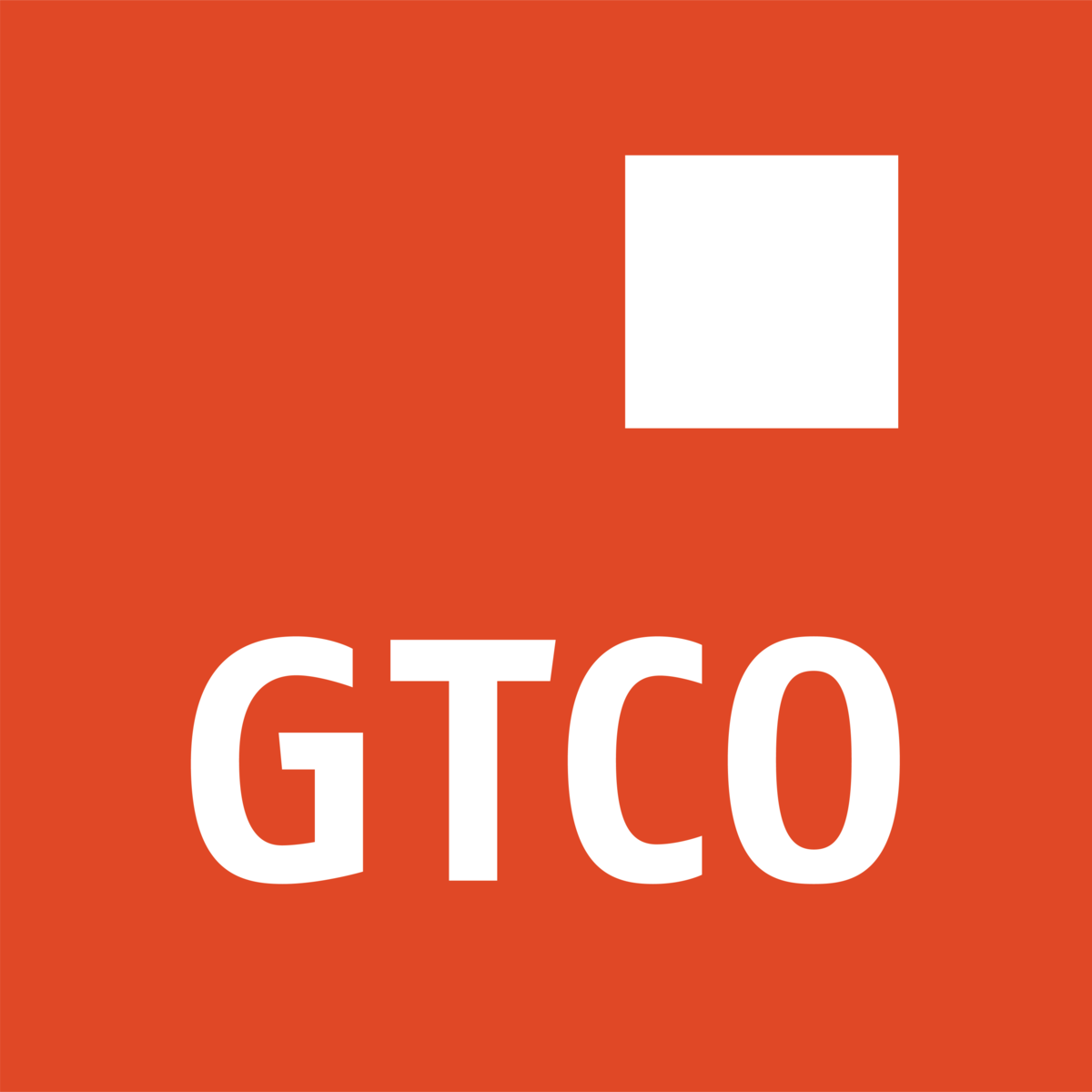
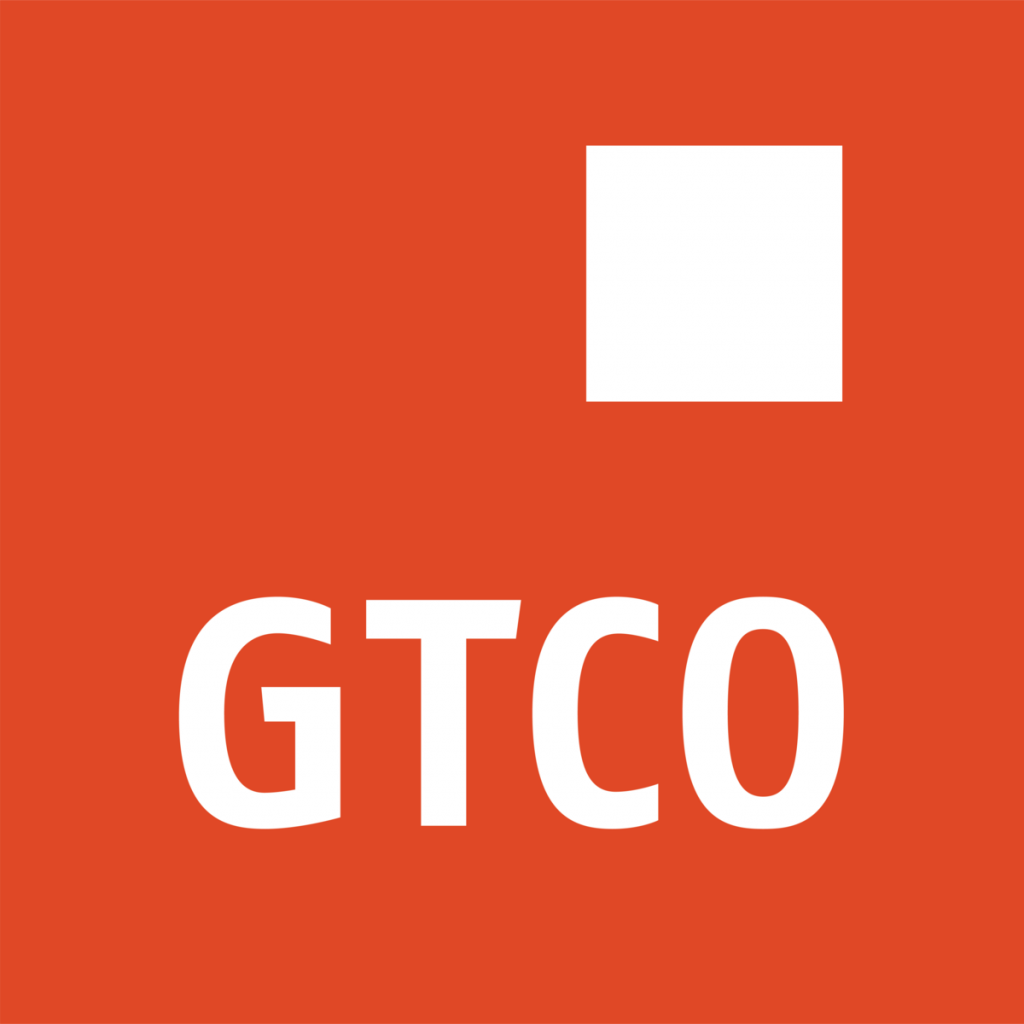
The Group posted profit before tax of ₦900.8billion on the back of strong performance on the core earnings lines of interest income and fee income which grew y-o-y by 25.6% and 16.8% respectively. The strong core-earning performance continued to narrow the y-o-y dip in PBT to 26%, thereby cushioning the impact of the ₦523.2bn fair value gains recognised in Q3-2024, which did not recur in Q3-2025.
The Group recorded growths across all its Asset lines and continues to maintain a well-structured, healthy liquid and diversified balance sheet in all the jurisdictions wherein it operates a Banking franchise, as well as across its Payments, Pension and Funds Management business verticals.
Group’s total assets and shareholders’ funds closed at ₦16.7trillion and ₦3.3trillion, respectively. Capital Adequacy Ratio (CAR) remained very robust and strong, closing at 36.5%, likewise asset quality improved as evidenced by IFRS 9 Stage 3 Loans which closed at 3.3% and 4.4% % at Bank and Group level in Q3-2025 (Bank 3.5%, Group 5.2% in December 2024). Cost of Risk (COR) also improved to 2.2% from 4.9% in December 2024. In specific terms, the Group’s loan book (net) grew by 16.5% from ₦2.79trillion as of December 2024 to ₦3.24trillion in September 2025. Similarly, deposit liabilities grew by 16.0% from ₦10.40trillion to ₦12.06trillion during the same period.
Commenting on the results, the Group Chief Executive Officer of Guaranty Trust Holding Company Plc, Mr. Segun Agbaje, said: “Our third quarter performance underscores the consistency and resilience of our business model, as well as the continued strength of our diversified financial services ecosystem. We are seeing steady, sustainable growth across our banking and non-banking businesses, supported by disciplined execution and a strong focus on operational efficiency. The improvements we have made to our digital and payments infrastructure are enhancing customer experience, deepening engagement, and driving greater integration across our ecosystem.”
He further stated: “Looking ahead, our focus remains on advancing our competitive edge through innovation, operational excellence, and a commitment to superior customer outcomes. With a clear growth trajectory and strong organizational alignment, we are well-positioned to sustain performance momentum and deliver another year of industry-leading results.”
Overall, the Group continues to post one of the best metrics in the Nigerian Financial Services Industry in terms of key financial ratios i.e., Pre-Tax Return on Equity (ROAE) of 39.5%, Pre-Tax Return on Assets (ROAA) of 7.6%, Capital Adequacy Ratio (CAR) of 36.5% and Cost to Income ratio of 28.8%.
Guaranty Trust Holding Company Plc is a leading financial services group with operations across Africa and the United Kingdom. Renowned for its strong corporate governance, innovative financial solutions, and customer-centric approach, GTCO Plc provides a wide range of banking and non-banking services including payments, funds management, and pension fund administration. The Group is committed to delivering long-term value to stakeholders while driving growth and development across its markets
brand
Access Holdings Reports 2.5 Trillion Gross Earnings in H1 2025
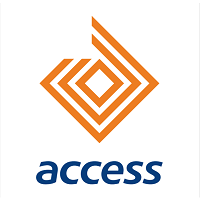
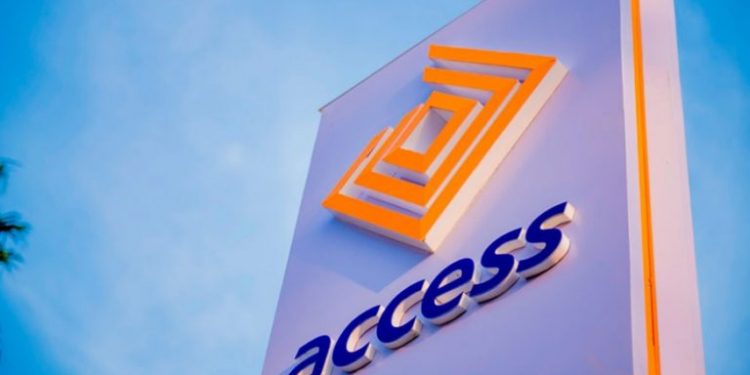
Access Holdings Plc (“the Group” or “the Company”) today announced its half-year audited financial results for the period ended June 30, 2025.The Group’s financial results for the half year ended June 30, 2025, reflect the resilience of our business model, the diversification of our revenue streams, and the steady progress to the execution of our five-year strategic plan. Gross earnings increased by 13.8% year-on-year to 2.5 trillion in H1 2025 from 2.2₦ ₦ trillion in H1 2024, driven by strong growth in interest income which increased by 38.9% year-on-year to 2.0 trillion from 1.5 billion in H1 2024. Net interest income also increased by 91.8% year-on-year to 984.6 billion in H1 2025 from 513.4 billion in H1 2024. Complementing this performance was a growth in net fees and commission income, which increased by 16.1% year-on-year to 237.7billion in H1 2025 from 204.7 billion in H1 2024. Profit before tax (PBT) and profit after tax (PAT) closed at 320.6 billion and 215.9 billion respectively underscoring the strength and resilience of our business model in the markets we operate in. Key balance sheet indicators remain strong with total assets, customer deposits, loans and advances, and shareholders’ equity closing at 42.4 trillion, 22.9 trillion, 13.2 trillion 3.8 trillion respectively. The Banking group demonstrated resilient performance in H1 2025. Interest income grew by 38.7% year-on-year to 2.0 trillion in H1 2025 from 1.5 trillion in H1 2024. Net interest income increased by 85%, from 536.7 billion in H1 2024 to 992.7 billion in H1 2025. Fee and commission income increased by 27% to 294.9 in H1 2025 from 232.5 billion in H1 2024 driven by increased transaction volumes. Profit before tax (PBT) and profit after tax (PAT) closed at 303.0 billion and 199.3 billion respectively. Banking group subsidiaries contributed 65% to the Banking group’s profit before tax (PBT) in H1 2025. This result highlights our journey towards sustainable performance and execution across our key African and international markets. The Group’s non-banking subsidiaries maintained a strong growth momentum. For Access – ARM Pensions, financial performance was robust, with revenue up 29.9% to 21.0 billion and profit before tax up 65.1% to 13.1 billion. The business delivered a₦ ₦
www.accessbankplc.com solid ROAE of 48.1%, a cost-to-income ratio of 35.1%, and a PBT margin of 62.5%, underscoring strong operational efficiency and profitability. Hydrogen Payments recorded a 40.5% growth in top-line revenue compared to H1 2024. Profit before tax (PBT) grew by 273% year-on-year. The total transaction value processed increased by 211%, reaching 41.1 trillion in H1 2025, up from 13.8 trillion in H1 2024. Access Insurance Brokers has sustained strong momentum, recording a 125% year-on-year increase in gross written premium, 146% growth in revenue, and a 161% improvement in profit before tax (PBT). Oxygen X, the Group’s digital lending arm, has sustained strong momentum since launch in Q3 2024, delivering 5.4 billion in revenue and 2.2 billion in profit before tax in H1 2025. Access Holdings’ businesses are well-positioned to deepen market penetration, expand product offerings, and leverage cross-sell opportunities across the Group to drive continued growth and profitability. The group’s focus remains on driving prudent growth and continued execution of its strategic priorities, scaling its digital and transaction-led income streams, increasing revenue diversification, embedding efficiency, innovation, and disciplined portfolio management across all areas of the business. It will also continue to uphold the highest standards of risk and governance discipline to ensure sustainable profitability.Access Holdings remains confident that it will continue to deliver sustainable value and returns to its shareholders. Its long-term objective is to build a stronger, more agile Group that consistently delivers superior returns, fosters innovation-driven growth, and optimises portfolio performance to create inclusive value across its markets while reaffirming investor confidence in the strength and future of Access Holdings. The Group appreciates the continued trust and support of its shareholders, customers, and employees. Together, the Group is building a stronger future.
-

 news5 years ago
news5 years agoUPDATE: #ENDSARS: CCTV footage of Lekki shootings intact – Says Sanwo – Olu
-

 lifestyle5 years ago
lifestyle5 years agoFormer Miss World: Mixed reactions trail Agbani Darego’s looks
-

 health5 years ago
health5 years agoChairman Agege LG, Ganiyu Egunjobi Receives Covid-19 Vaccines
-

 lifestyle4 years ago
lifestyle4 years agoObateru: Celebrating a Quintessential PR Man at 60
-

 health5 years ago
health5 years agoUPDATE : Nigeria Records 790 new cases of COVID-19
-

 health5 years ago
health5 years agoBREAKING: Nigeria confirms 663 new cases of COVID-19
-

 entertainment9 months ago
entertainment9 months agoAshny Set for Valentine Special and new Album ‘ Femme Fatale’
-

 news5 months ago
news5 months agoBREAKING: Tinubu swears in new NNPCL Board


